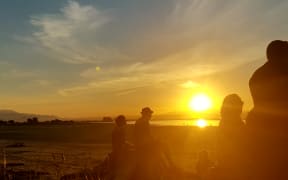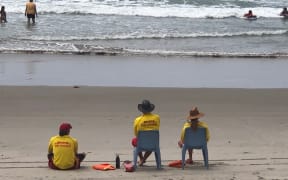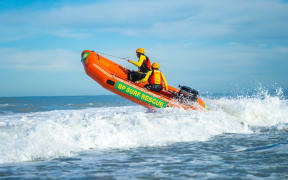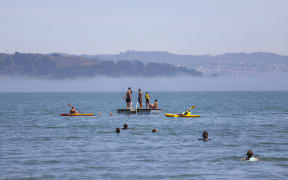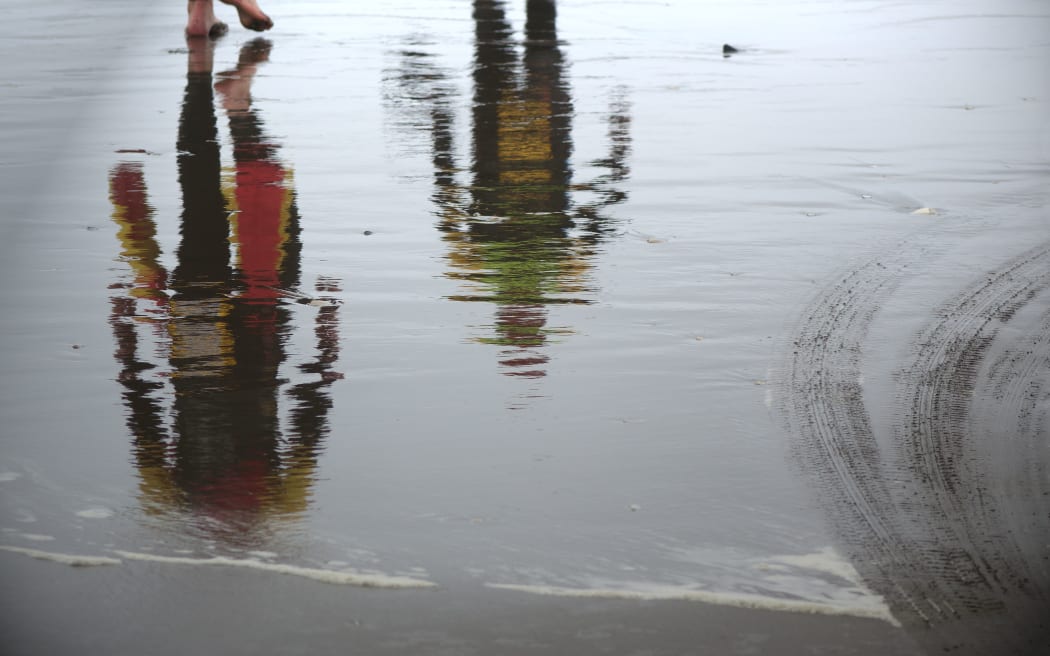
Of the 2023 provisional total of 90 preventable drownings, 26 were at beaches. Photo: RNZ / Kim Baker Wilson
Men aged over 45 made up 58 percent of the provisional total of 90 preventable drownings in 2023, and Water Safety NZ (WSNZ) wants more resources targeted at the "hard-to-reach bunch of blokes".
"We are still seeing an unacceptable number of preventable deaths, especially among older New Zealand males who continue to make risky choices around water," WSNZ CEO Daniel Gerrard said.
The number of drownings last year was above the 10-year average of 82, but lower than 2022's 94 preventable drownings.
Males accounted for 83 percent of those who drowned in 2023, WSNZ said.
Unintentional slips and falls led to 29 of the drownings, while in 19 cases people were swimming or playing in the water.
Drownings linked to powered craft dropped to four from 21 in 2022, and was lower than the 10-year average of 11.
It was hoped messages such as the "Just Wear It" lifejacket campaign, run in conjunction with Coastguard NZ, were beginning to be listened to, WSNZ said.
Of the 90 drownings, 26 were at beaches, 24 in rivers, 11 in pools and 11 offshore.
Auckland and Waikato both had above average drownings, with 26 and 16, respectively.
The 12 drownings in Hawke's Bay were three times higher than average for the region, with the increase partly due to flood-related incidents, WSNZ said.
Drownings dropped in Northland to four from 18 in 2022, and was below the 10-year average of 11.
Drowning numbers remained distressingly high, and immediate and robust action was needed, Gerrard said.
WSNZ wanted a three-pronged approach, with one prong targeted towards older men.
More resources were needed to expand meaningful messaging to "this hard-to-reach bunch of blokes", Gerrard said.
"Every child needed to be taught at school how to float and move in the water, and to be given a basic understanding of the country's waterways. And floating wasn't just for children. Everyone should understand its importance."
* This story was first published by Stuff.

